
Tell us about masculinity, Esther
Masculinity. What does it mean to you? To society? And, most importantly, what does it mean to men themselves? These are the questions therapist Esther Perel waxes on in her newest video on masculinity. As you may know, Esther Perel has done wonderful work for relationships and even families. Her discussion on masculinity of course falls in line with her poignant thinking about relationships.
Personally, I love how she talks about how masculinity is seen as “an imperative, a duty, a performance, a ‘prove it’.” I have witnessed many men and AMAB folks talk with certainty and absolutism that masculinity is way of being that has been defined by others, and they’re trying to find a way to fit in or make it work for them.
By naming the reality that today, masculinity is “hard to acquire, and easy to lose”, Perel pokes at the heightened and unrealistic expectations faced by men to follow a path only Sysiphus would love. If you work hard, isolate, beef up, and push away you’ve successfully earned your man card. Use the word “cute” or stand incorrectly, your man card is revoked. What is this bullshit?
What expectations of masculinity are you ready to give up in favor of your mental health?
What aspects of masculinity do you want to keep in favor of your mental health?
Let’s take a moment and be soothed by Esther’s thoughts.

Dore Alley, and the benefits of kink
The annual ‘Up Your Alley Fair,’ or to local’s ‘Dore Alley’ is upon us. For some, the weekend is marked by individuals wearing leather attire, puppy masks, bound by rope or even perhaps nothing at all. However, at a much closer look, Dore is a celebration of leather/kink/fetish identities that are commonly misunderstood and often deemed ‘perverse’ in the dominant society.
Kink is regarded as an umbrella term to address the wide range of sexual fantasies, interests, and identities that are carried out with consensually agreed upon behaviors. It is common for folks to use kink in relationship dynamic(s) where erotization derives from power dynamics and/or role-playing erotic scenarios. For example, age-play between a “daddy–son” dynamic or submission-play between “handler and their pup” are common scenes. Engaging in kink is a vulnerable process where demonstrating traits of mutual agreement, openness, authenticity, and negotiation with play partner(s) may assist in making the experience(s) more enjoyable.
Recently, reach conducted by The Alternative Sexualities Health Research Alliance (TASHRA)
has shown the positive impact that participating in kink has on mental health- helping individuals cultivate better senses of self-acceptance, positive relationships, autonomy, and personal growth.
If you are curious about exploring your kinks and/or your ‘Sub’ or ‘‘Dom’ side, TASHRA, makes the following recommendations around sexual play with potential partners.
• Be intentional around cultivating positive and nourishing experiences
(e.g., determine scene play and number of partners beforehand)
• Listen to and respect each other’s boundaries, especially sub’s
(never undermine one another)
• Allow negative feelings to surface and be worked through in the dynamic
(e.g. Unhappiness, jealousy, guilt, etc.).
• Use a ‘safeword’
• Be silly, have fun with it.
Exploring your kinks/fetishes/sexual desires is essential to one’s mental and sexual well-being. Reach out to a sex therapist to help you gain more clarity around your intentions, expectations, and boundaries. Relationship therapy can also help partners have a safe enough space to work through potential concerns or anxieties around introducing kink or understanding any desire discrepancies in the relationship.
Colin Fyfe, AMFT is a sex and relationship therapist in San Francisco, California. He specializes in working with the LGBTQIA community, men's mental health, and substance use issues. Colin also offers online therapy.
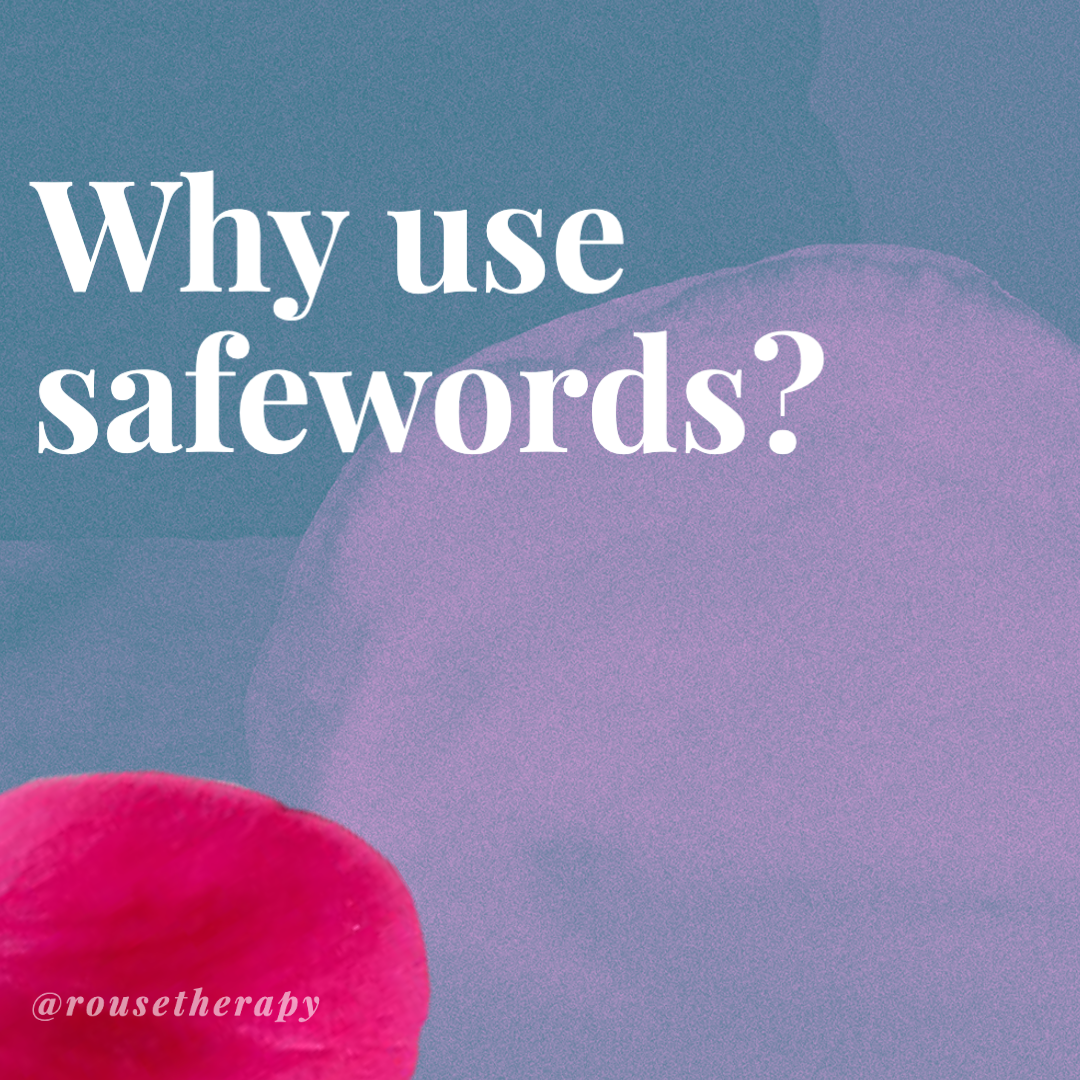
Why use safewords?
Why use safewords?
When it comes to having sex, there are many things to consider. One thing that’s important for everyone to think about is using safewords. But what are they, and why should you use them? Here’s everything you need to know!
Safewords can be really helpful in ensuring both partners have a good time during sex. They’re instrumental if one or both partners are new to kink or BDSM (Bondage/Discipline/Sadism/Masochism). Safewords let each partner know when they’re pushing the other person’s boundaries and when they need to stop. Plus, they can be a fun way to add extra spice to your sex life!
When should we use a safeword?
Safewords are beneficial, and some might say necessary, part of kink. Safewords are used as a safety measure to stop or slow down erotic play. Allowing the slowing down or stopping is especially useful when you’re engaging in types of play with extra risk elements, such as using restraints, inflicting pain, or role-playing.

Monkeypox: Not a gay disease
If you haven’t already heard, there’s a new public health crisis happening that isn’t COVID related – Monkeypox. Although rare outside of Central and West Africa, cases of Monkeypox have started to show an upward trend, impacting men who have sex with men (MSM) communities at a much higher rate. However, Monkeypox will affect anyone who has been in recent contact with another infected individual. Social media, unfortunately, has begun to associate Monkeypox as the “gay disease” –being transmitted at gay-oriented super spreader events such as saunas, bars, and dance parties. The reality is Monkeypox is transmitted from person to person through respiratory droplets, touching an exposed lesion and/or viral particles that may be present on nearby surfaces.
According to the CDC, Individuals are likely to get flu-like symptoms followed by rashes on parts of the face, arm, legs, and genitals that appear 1-2 weeks after initial exposure.
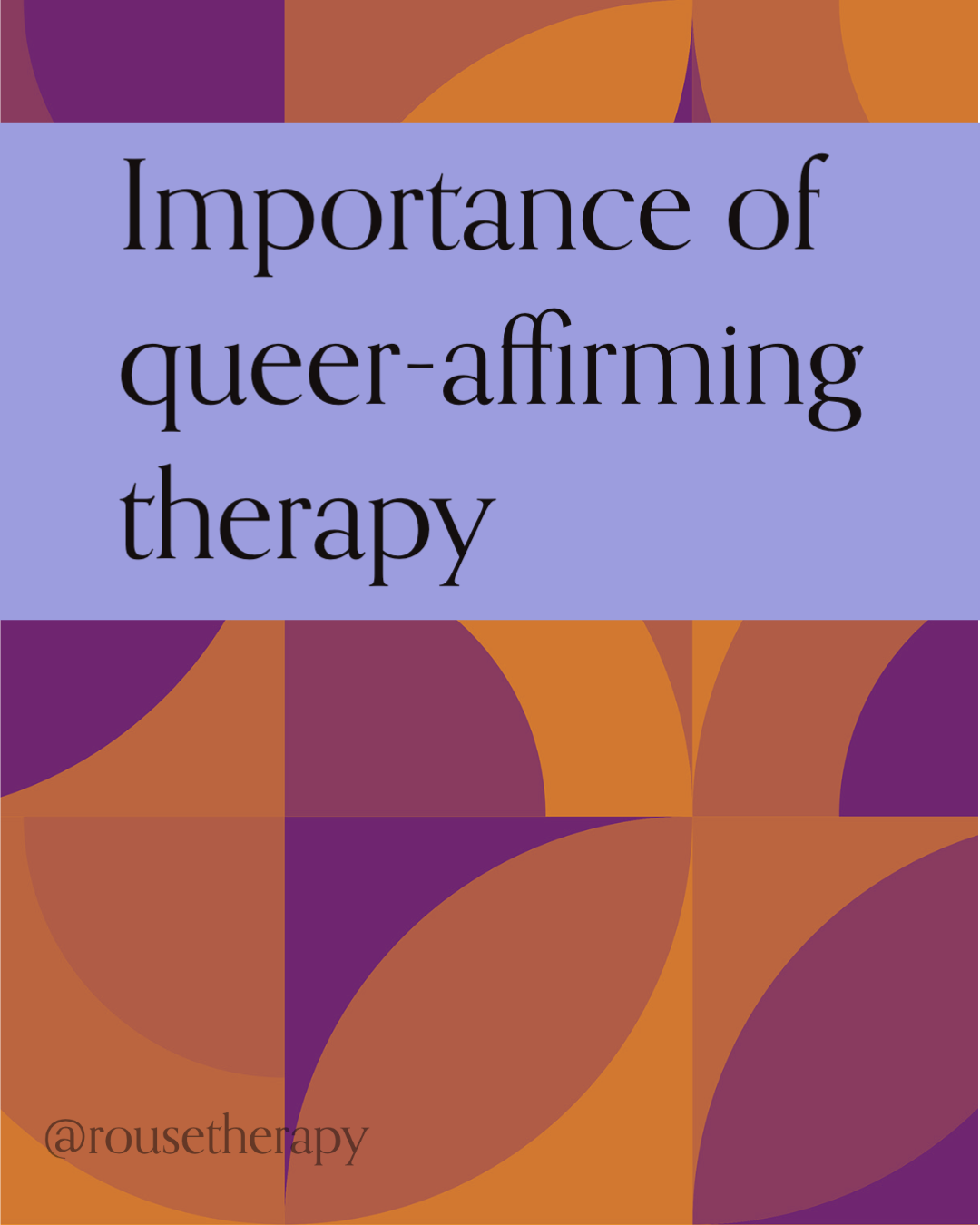
Importance of queer-affirming couples therapy
Therapy is important. Queer-affirming therapy is vital if you're in a queer relationship. Finding a therapist who understands your specific needs and can help you maintain your relationship is crucial. Queer-affirming relationship therapy can be a powerful tool for assisting queer couples in building healthy and sustainable relationships. In this post, we'll explore why queer-affirming therapy is so important, and we'll look at some of the specific benefits it can offer to queer clients.
The therapist can address your concerns without you educating them…
Queer-affirming therapists can support and hold space for you while you explore unique issues in queer partnerships, like:
Coming out
Discrimination and harassment
Resiliency factors in queer communities
Heightened rates of mental health issues related to discrimination
Increased rates of suicide attempts
Historical trauma
Multiply marginalized identities
Queer-affirming couples therapy can be challenging but rewarding because…
you get to learn new communication skills
it allows conflict and repair to create more bonding
learn about and work with your attachment styles
increases self-acceptance and self-compassion
it can reduce shame and anxiety
you can openly explore kink and polyamory without being pathologized
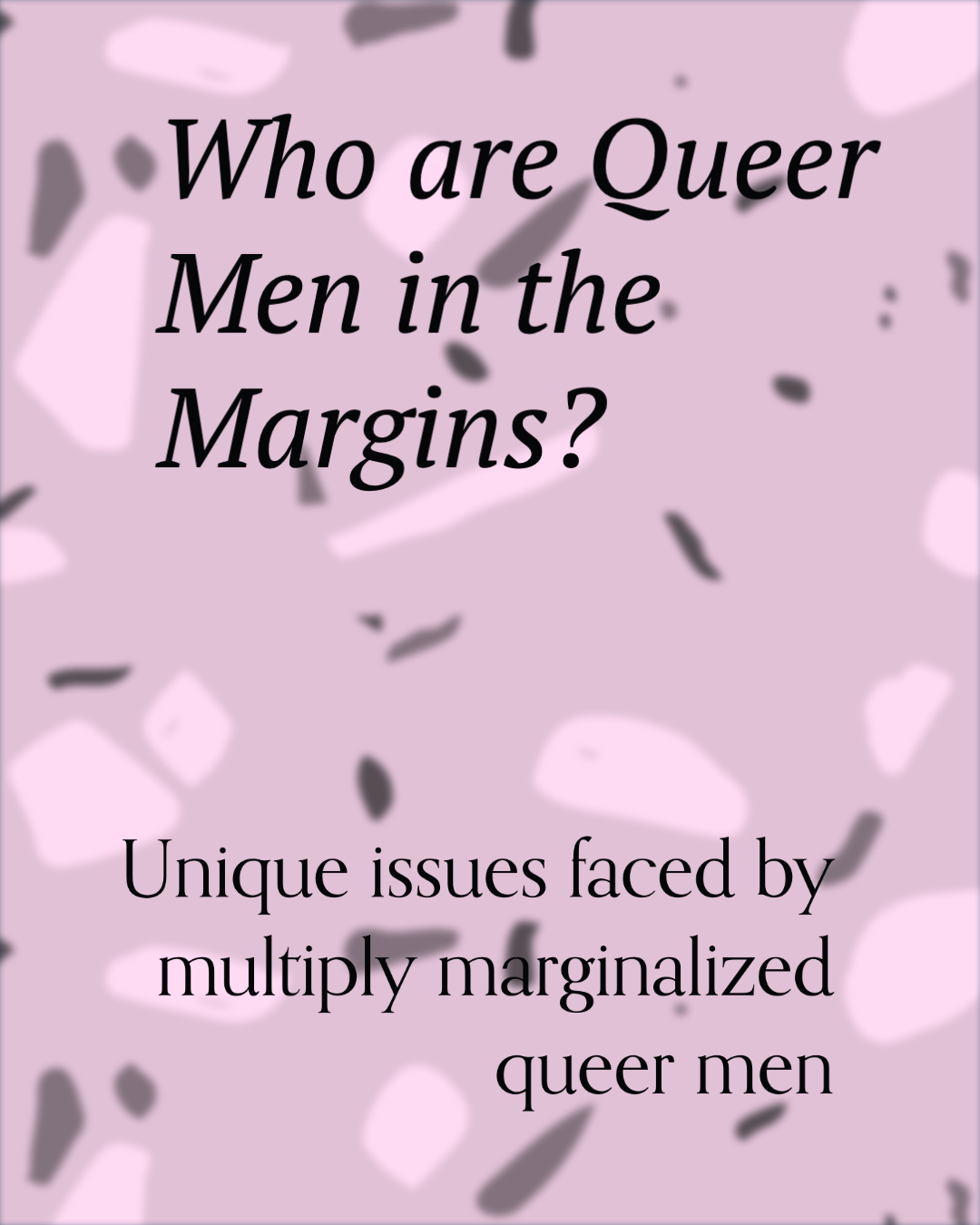
Queer men in the margins
There’s a lot of talk in the therapeutic and coaching communities about LGBTQIA+ issues. But what about queer men who exist on the margins of society? In this blog post, we’ll explore some unique challenges they face. Queer men in the margins often struggle with isolation, poverty, and mental health issues. They also face discrimination and violence at higher rates than other members of the LGBTQIA+ community. If you’re a therapist or coach working with queer men, you must be aware of these issues and provide support accordingly.
Who are they
Queer men in the margins are queer men who are multiply marginalized based on their other social identities. They can include, but are not limited to, queer men who are also:
BIPOC
Poly/kinky
Trans/non-binary
Lower socioeconomic status
Asexual/aromantic
HIV+/Men with AIDS
First-gen
In mixed identity relationships
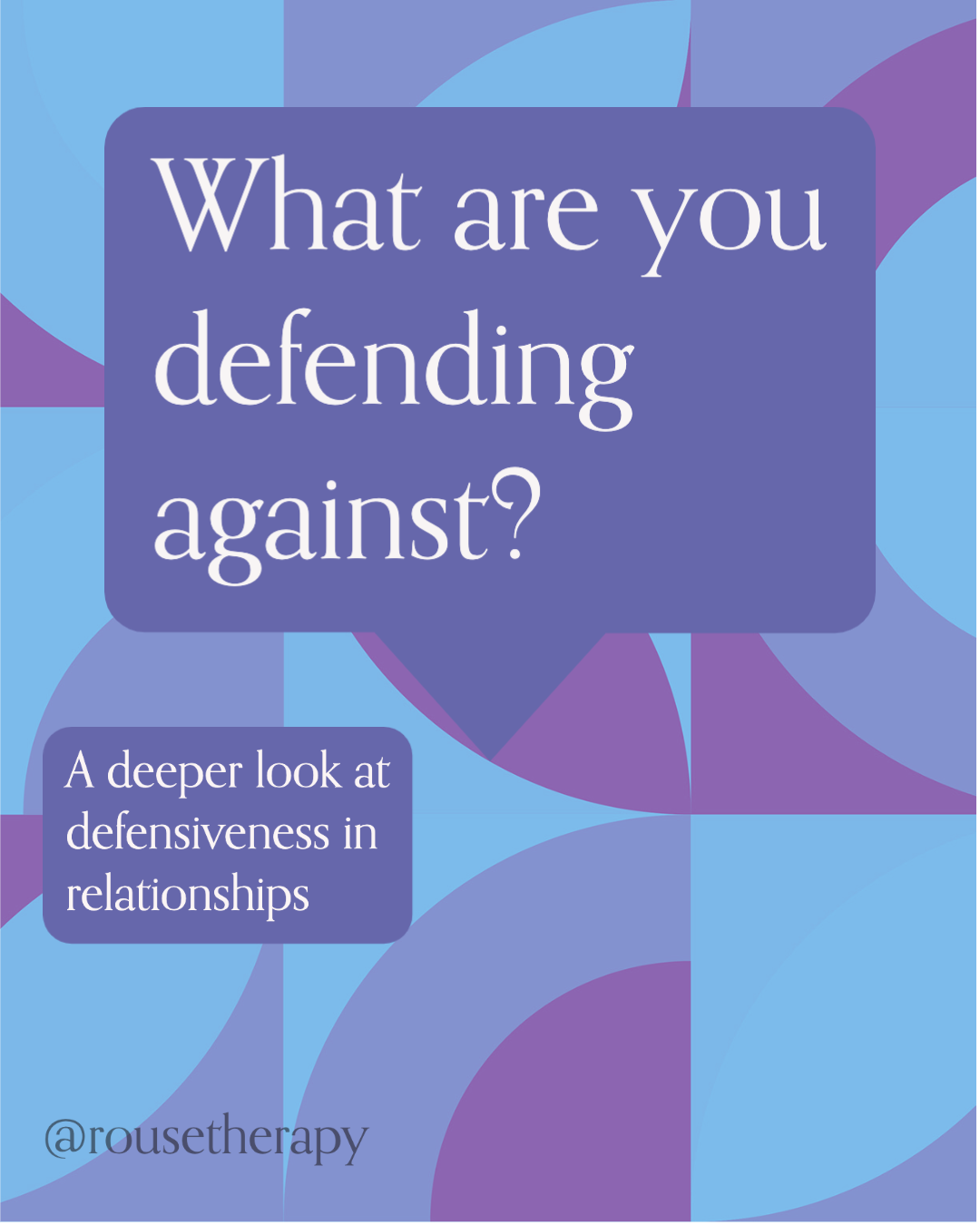
What are you defending against?
We’ve all been there. You’re in a relationship, and something your partner does or says makes you feel defensive. Maybe they criticize your work or say something that hurts your feelings. It can be tough not to react defensively in those moments. But trust us, learning how to stop being defensive is worth it. We covered The Four Horsemen and longer articles on parts of the horsemen like Stonewalling in previous posts. In this post, we’ll look at defensiveness, how it shows up, what you can do to start working against it, and most importantly, how to better understand your defenses to heal your inner wounds.
What does defensiveness look like?
Unintended Defensiveness: This style of defensiveness is reactive, meaning that it’s an unconscious habit. An example of Unintended Defensiveness can be when a partner makes a mistake, causes harm, but won’t take responsibility because they “didn’t mean to.” This reaction can be connected to feelings of insecurity or related to trauma, i.e., humiliation or criticism by a caregiver or former partner. Defensiveness can also be connected to an inability to be compassionate to yourself while also taking responsibility for your mistakes.

Stop stonewalling.
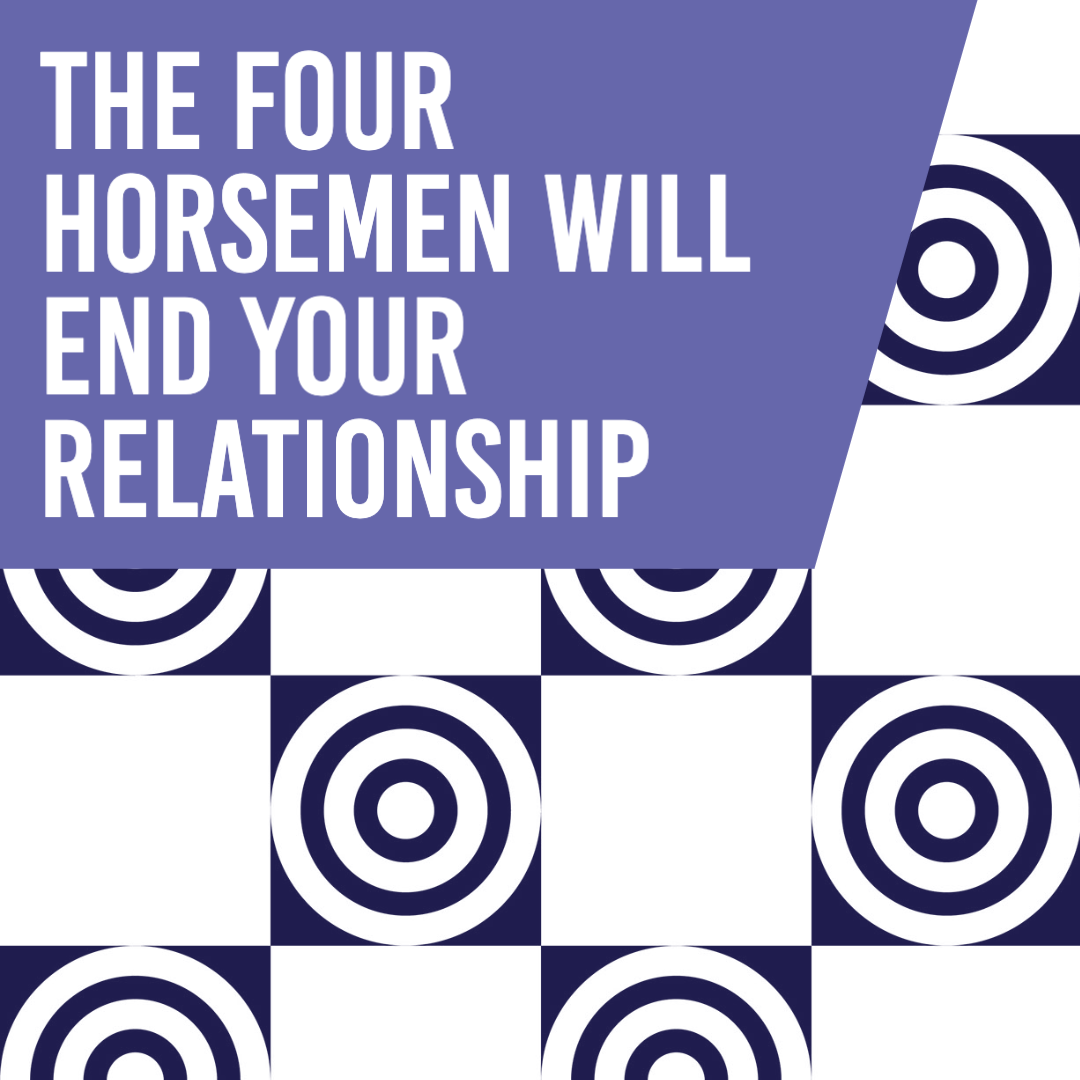
The Four Horsemen will end your relationship
Often when working with individuals, couples, and polycules in relationship therapy, we first start with helping our clients identify habits and patterns that have a negative hit on their relationship. In relationships, four habits can cause a lot of damage. If you can identify these patterns and steer clear of them, your relationship will be better off for it. Today, we're going to talk about what they are and how to avoid them.
In 1986 John Gottman designed "The Love Lab," where he could observe couples "in their natural habitat," as it were. Through this study and continued research with thousands of couples, John and Sue Gottman discovered four reliable predictors for divorce. Those predictors are known as "The Four Horsemen" or "Foursemen" if you're short on time. Let's take a look at them in detail:
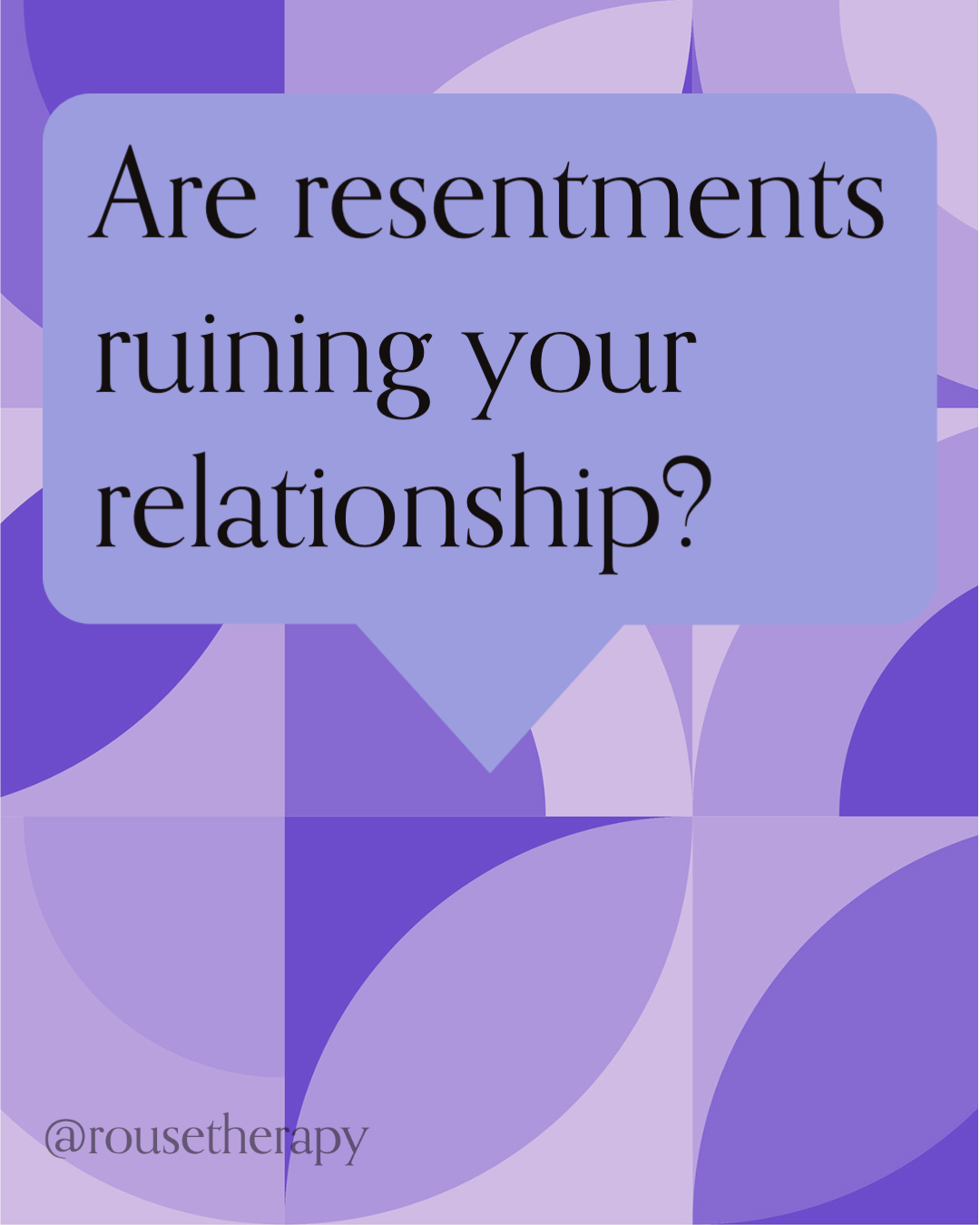
Are resentments ruining your relationship?
Disclaimer: This is for educational purposes only. This article is not a replacement for therapy, direct advice, nor is it offered to reflect your current circumstances. Instead, we encourage you to use good old-fashioned critical thinking skills when considering the following article for your own life.
Sometimes when I’m meeting someone, I make the mistake of telling them that I’m a sex and relationship therapist. It’s usually not a problem, but depending on my mood, there are times when I don’t want to talk about therapy to someone on my day off. My slip sometimes lands very well, but other times the person either dives into their issues or backs away slowly like I’m a mind reader (*wiggles fingers*).
Recently at a made-up party, I told a guy I was a sex and relationship therapist, and he launched into all the problems he has with his boyfriend. In the first ten minutes, I learned how he was frustrated and disappointed with his boyfriend. I heard about all the no-longer-cute idiosyncrasies of his boyfriend that are now causing distance.
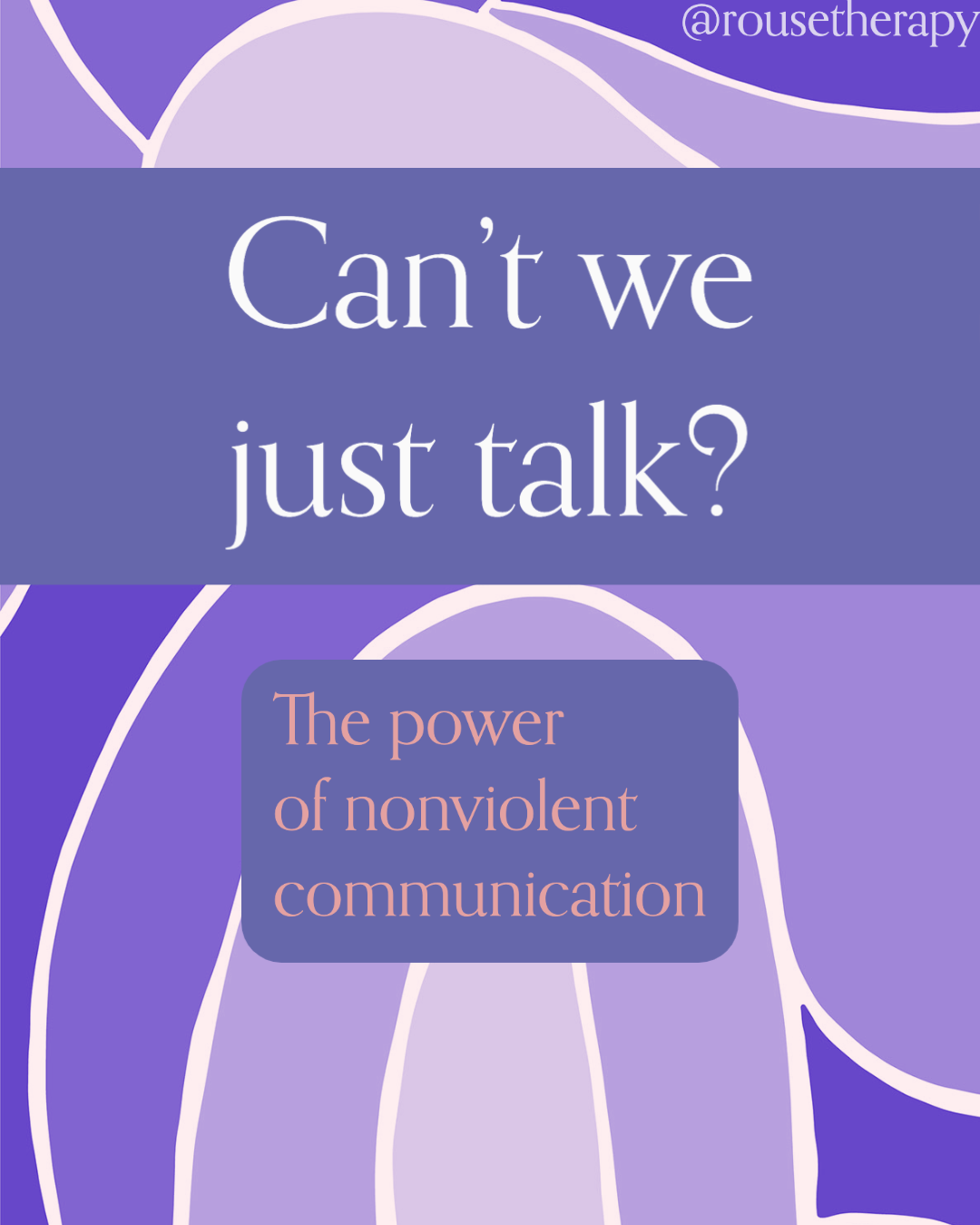
Can't we just talk? The power of nonviolent communication
If you're like most people, you've probably heard of nonviolent communication (or NVC), but don't really know what it is or how it works. In a nutshell, NVC is a way of communicating that's designed to create understanding and connection between people. It does this by helping us to express our feelings and needs in a clear and concise way. Plus, it's a great tool for dealing with difficult conversations! If you're interested in learning more about NVC, or want to start using it yourself, keep reading! I'll explain the basics of this approach to communication, and share some tips for getting started.
We recently came across this video and found it to be a helpful way of describing NVC and it’s uses.
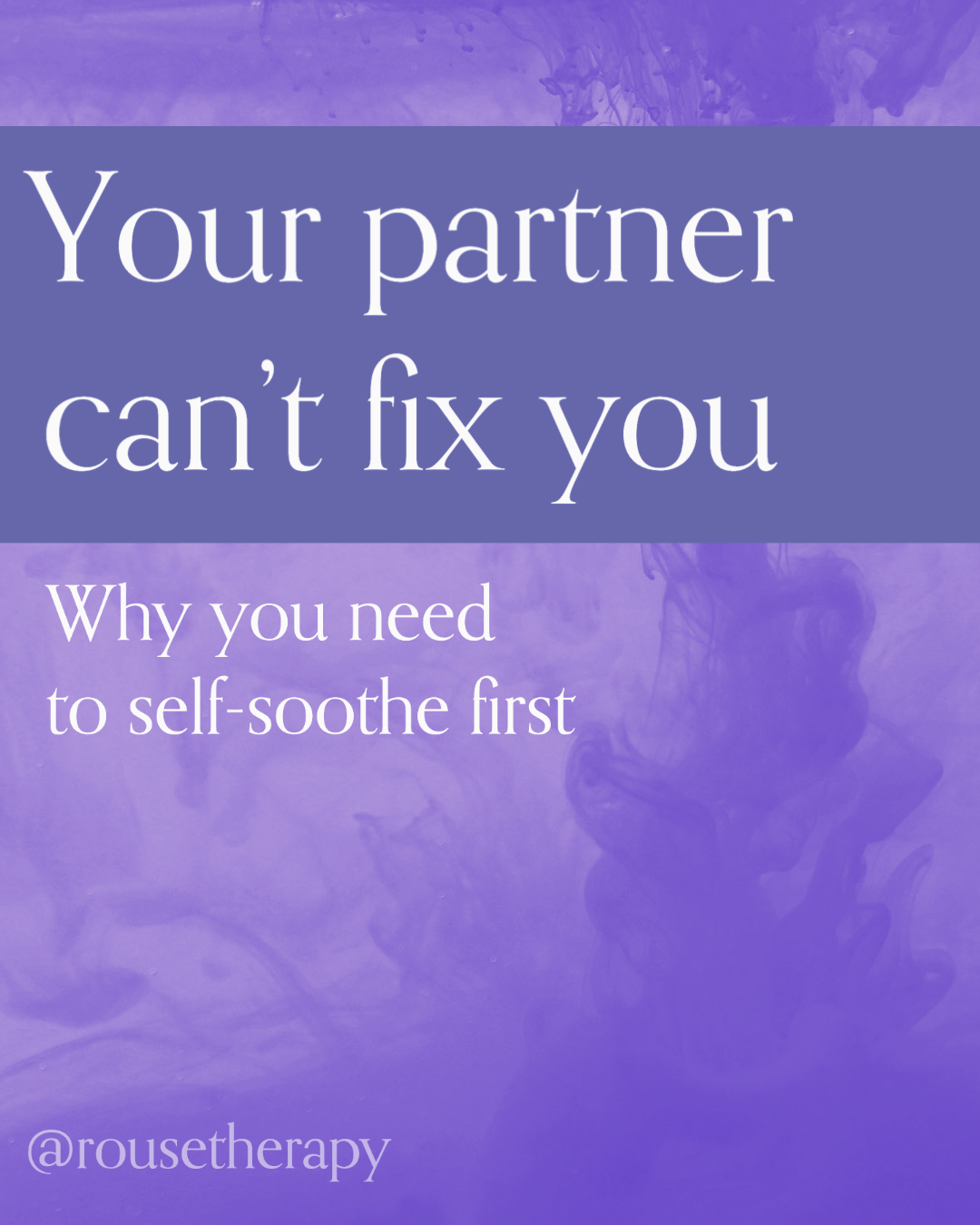
Your partner can't fix you
By learning how to soothe yourself, you learn to identify what you’re feeling and what you need. You can then communicate that to a partner or loved one if you want to be supported. By being able to tend to your needs initially, you can offer your partner a path to continue to help you.
I don’t doubt that you’ve probably tried many ways to approach the heightened emotions in your relationship. You’ve likely tried:
Anger management classes
Self-help books
Couples communication classes
Taking time apart
Couples therapy
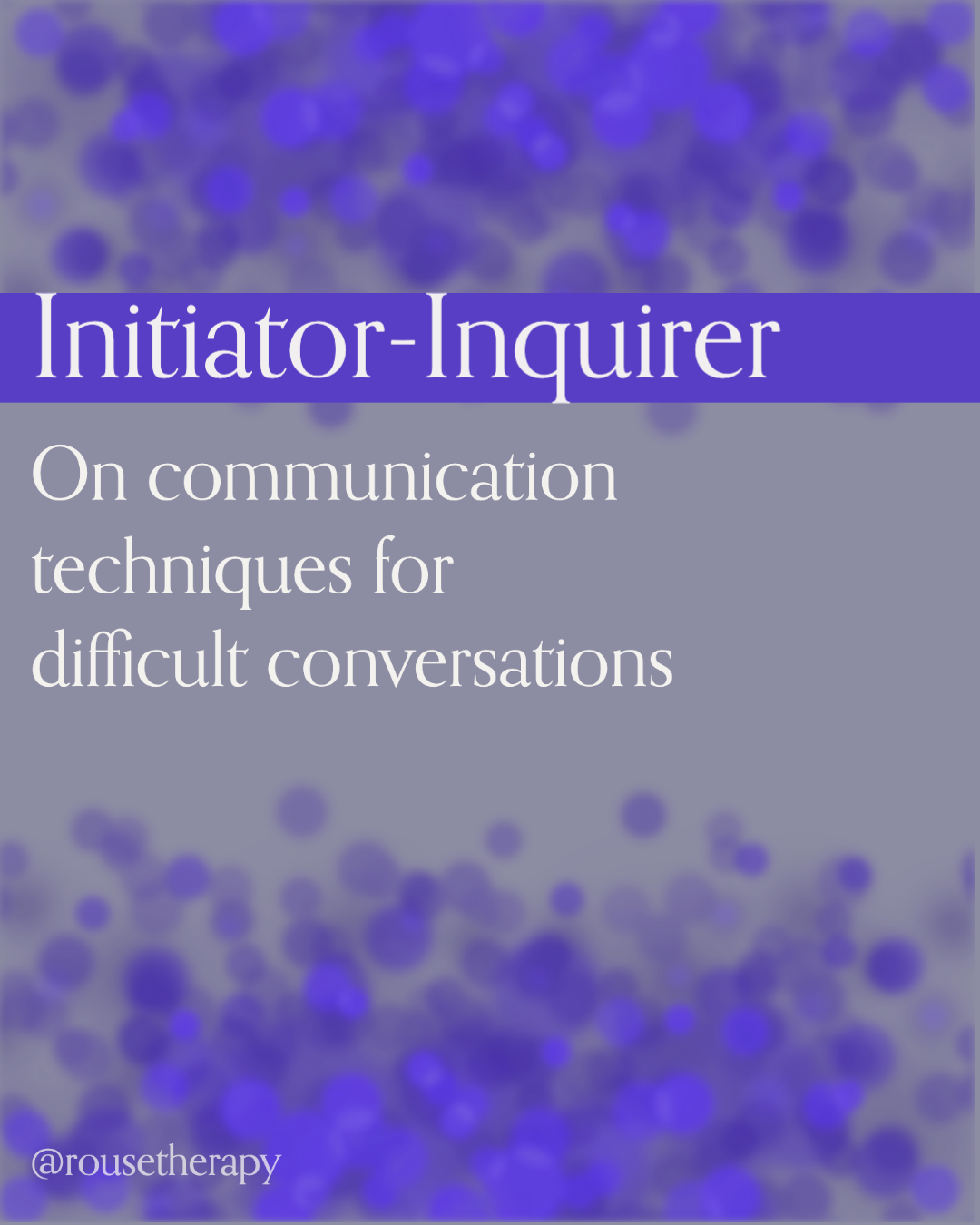
Initiator-Inquirer: Difficult conversations without fighting
It can be tough to figure out how to communicate with your partner. When’s a good time to talk with your partner? Do you need to take turns when talking? Do you keep questioning and investigating, or just go along with what they’re saying? You go into it feeling grounded and at peace, telling yourself you’ll stay calm … only to lose your shit a few minutes later.
Figuring out the right communication strategy for couples can make all the difference in your relationship. So let’s take a look at an intervention we often use at Rouse to help partners slow down and really communicate with each other.
What is Initiator-Inquirer?
Initiator-Inquirer is a communication exercise developed by Ellyn Bader and Pete Pearson from The Couples Institute in Menlo Park, CA. Bader and Pearson are highly experienced couples therapists who have been training upcoming couples therapists for over two decades.
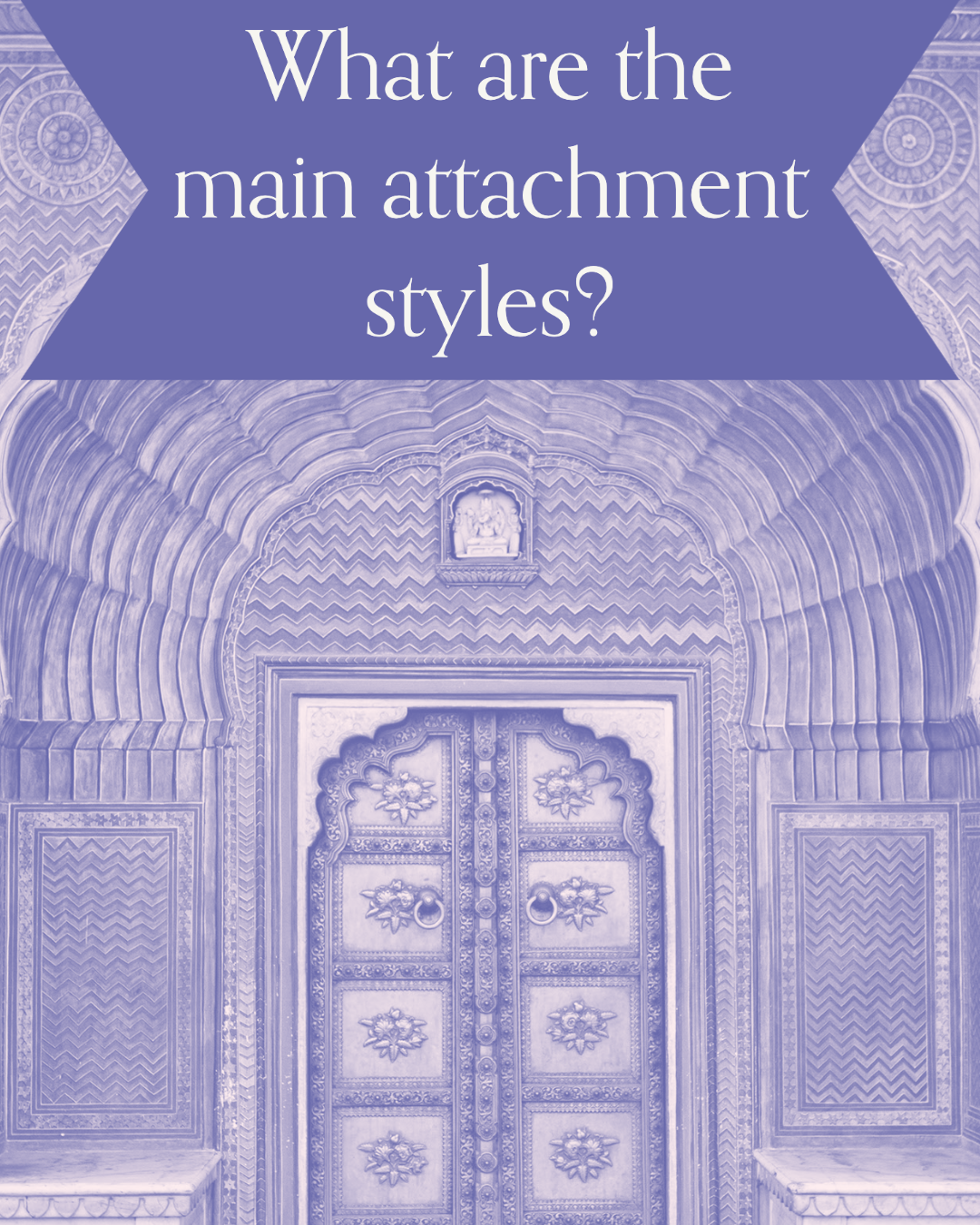
So, what are the main attachment styles anyway?
Have you ever wondered why you act the way you do around certain people? Why some situations make you feel really good, while others make you feel terrible? It might all have to do with your attachment style. Your attachment style is basically how you interact with other people and the world around you. There are four main types of attachment styles, and knowing which one you have can help explain a lot about your behavior. So what are the four attachment styles? Keep reading to find out!
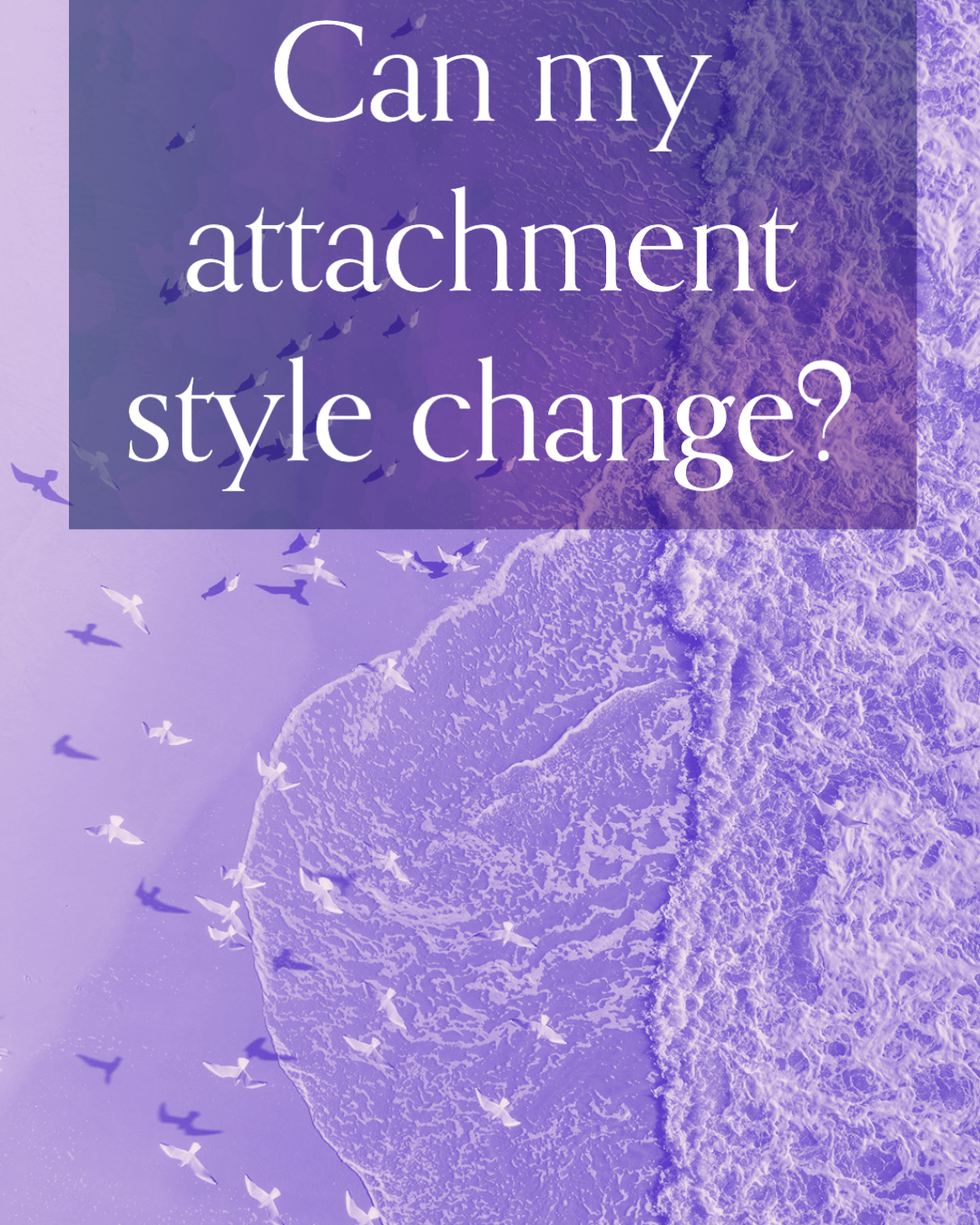
Can my attachment style change?
There’s been a lot of attention given to attachment styles over the last few years, and rightfully so. Attachment can help provide wonderful insight into the how’s and why’s around our way of connecting with others.
I discussed some of the origins of attachment theory in previous articles, and today I want to focus on a common question:
Does my attachment style change?

Anxious attachment styles: The hows, the why’s and the what do’s
Are you the type of person who panics when they're not around their partner? Do you feel like you’re uncertain of your relationship even if your partner says they love you? Do you find yourself scanning for proof that they do or don’t love you? If so, you may have an anxious attachment style. But, don't worry, there's nothing wrong with you!

Feel supported by your partner

DEAR MAN for Desires
We all have them. Our secret sexual desires that we keep hidden away, scared to share in case our partner doesn't find them desirable (or even worse, weird). But what happens when you do finally summon up the courage to tell your partner about that thing you've always wanted to try? It can be daunting - but it doesn't have to be.

Using sex to soothe
There’s no doubt that sex is a powerful thing. It can make us feel happy, fulfilled, and loved. Other times sex can be a way to connect, communicate, or care. Sometimes, people turn to sex as a way to soothe their emotions—especially when they’re feeling stressed, anxious, or grieving.

The truth about anxiety and desire
We all know that feeling. That pesky little voice in our head that tells us we're not good enough, smart enough, or sexy enough. It's the voice of anxiety, and for a lot of us, it can be debilitating. Anxiety can make it difficult to focus on anything else but our own perceived flaws.